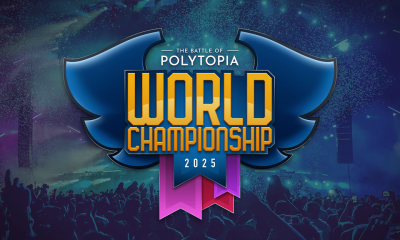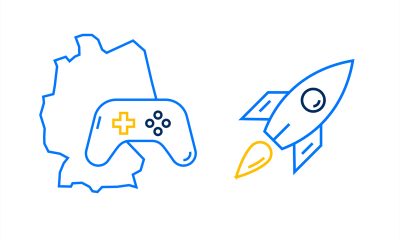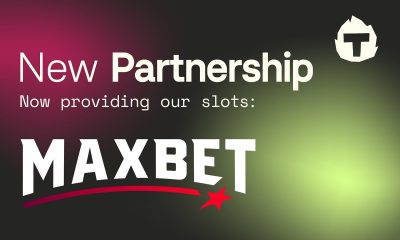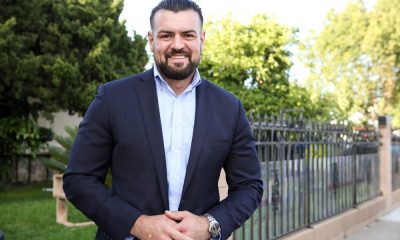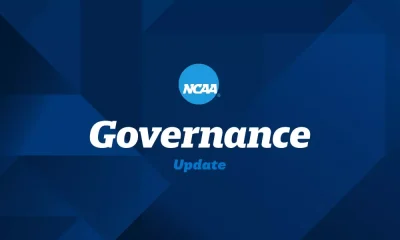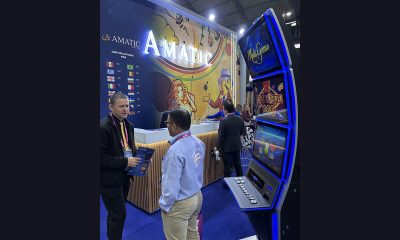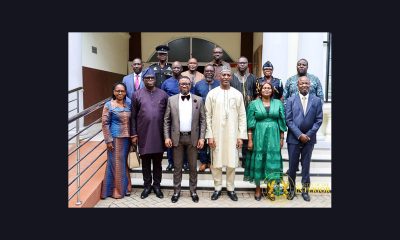Baltics
The Lithuanian Gaming Control Authority (LPT) has completed its inspection: Olympic Casino has been fined almost 8.4 million euros
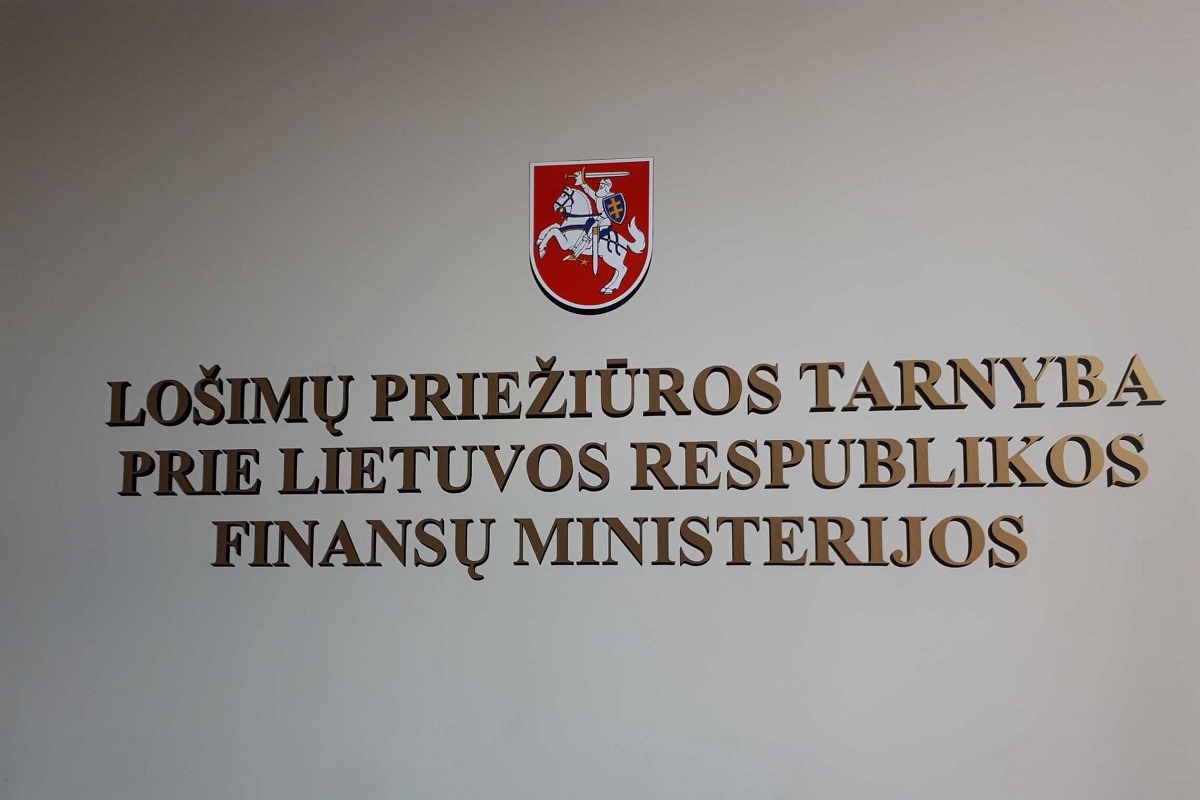
The company Olympic Casino Group Baltija (OCGB) did not take sufficient steps to identify the origin of Šarūnas Stepukonis’ losing funds, and the monitoring of his financial transactions was only formal and ineffective. Such violations were identified by the Gaming Supervisory Authority, which conducted an inspection of OCGB’s activities in Lithuania. The company was fined almost 8.4 million euros.
The Gaming Supervisory Authority (LPT) investigated the actions taken by OCGB in response to Š. Stepukonis’ transactions on the company’s gaming website from December 2016 to the end of June 2021. The law obliges gaming operators to ensure that customer funds are not obtained from criminal activities or through participation in such activities. It is also mandatory to verify the origin of the funds. LPT found that the measures applied by OCGB were poor and insufficient, and the monitoring of Š. Stepukonis’ transactions was formal.
Gambling organizers must report suspicious transactions to the FNTT. Š. Stepukonis’ transactions had obvious signs that should have raised suspicions for the gambling organizer. However, the FNTT was not informed about this.
During the inspection, evidence was also collected that Š. Stepukonis’ gambling was irresponsible. The gambling company should have noticed this, especially since the client was assigned a personal manager who saw all of his transactions.
“Instead of finding out whether Š. Stepukonis had a gambling problem or informing the supervisory authority, Olympic Casino encouraged him to gamble even more. An individual incentive package was prepared for him. A total of 1.3 million euros was allocated for this. This “bonus” could only be spent on gambling. Other incentives were also allocated,” – comments on the results of the inspection by LPT Director Virginijus Daukšys.
Since mid-2021, gambling companies in Lithuania have no longer been allowed to offer incentives to their customers that they would later lose. Just before this tightening came into effect, Š. Stepukonis’ virtual gambling was moved from Lithuania to Estonia, where it was still allowed to encourage gamblers.
In this way, it was possible not only to maintain incentives for gambling, but also to avoid supervision by the LPT. If an ordinary gambler from Lithuania tried to go and register on the Estonian Olympic Casino website, he would be redirected to the Lithuanian website. However, in the case of Š. Stepukonis, the redirection was not carried out. These circumstances are part of the pre-trial investigation.
During the inspection, a total of five violations of the provisions of the Law on the Prevention of Money Laundering and Financing of Terrorism and the Law on Gambling were identified.
The law allows for a fine of up to twice the amount of damage caused. The damage was determined to be 6.4 million euros – the amount Š. Stepukonis lost at the Olympic Casino in Lithuania. When calculating the fine, an aggravating circumstance was taken into account – the company did not cooperate during the inspection.
According to V. Daukšys, after this story came to light, steps were taken to prevent similar cases from recurring. The most important change is the law, proposed by the LPT, which obliges gambling companies to take action upon noticing irresponsible gambling and to provide information about it to the LPT.
“Until now, there was no such obligation. Therefore, the LPT did not have information that would allow it to take preventive actions in advance,” says V. Daukšys.
The new Gambling Law will come into force in November this year. Its aim is to reduce the accessibility, attractiveness and potential harm to personal health of gambling.
LPT also reviewed its procedures, adjusted internal procedures, allowing for more frequent scheduled inspections of the activities of gambling companies. In addition, the Ministry of Finance conducted an audit of LPT’s activities. No significant operational deficiencies were identified during the audit. LPT took into account the audit recommendations and allocated more human resources to money laundering prevention functions.
Source: Gambling Supervisory Authority under the Ministry of Finance of the Republic of Lithuania
The post The Lithuanian Gaming Control Authority (LPT) has completed its inspection: Olympic Casino has been fined almost 8.4 million euros appeared first on European Gaming Industry News.
Baltics
HIPTHER Community Voices: Interview with the CEO and co-founder of Nordcurrent Victoria Trofimova
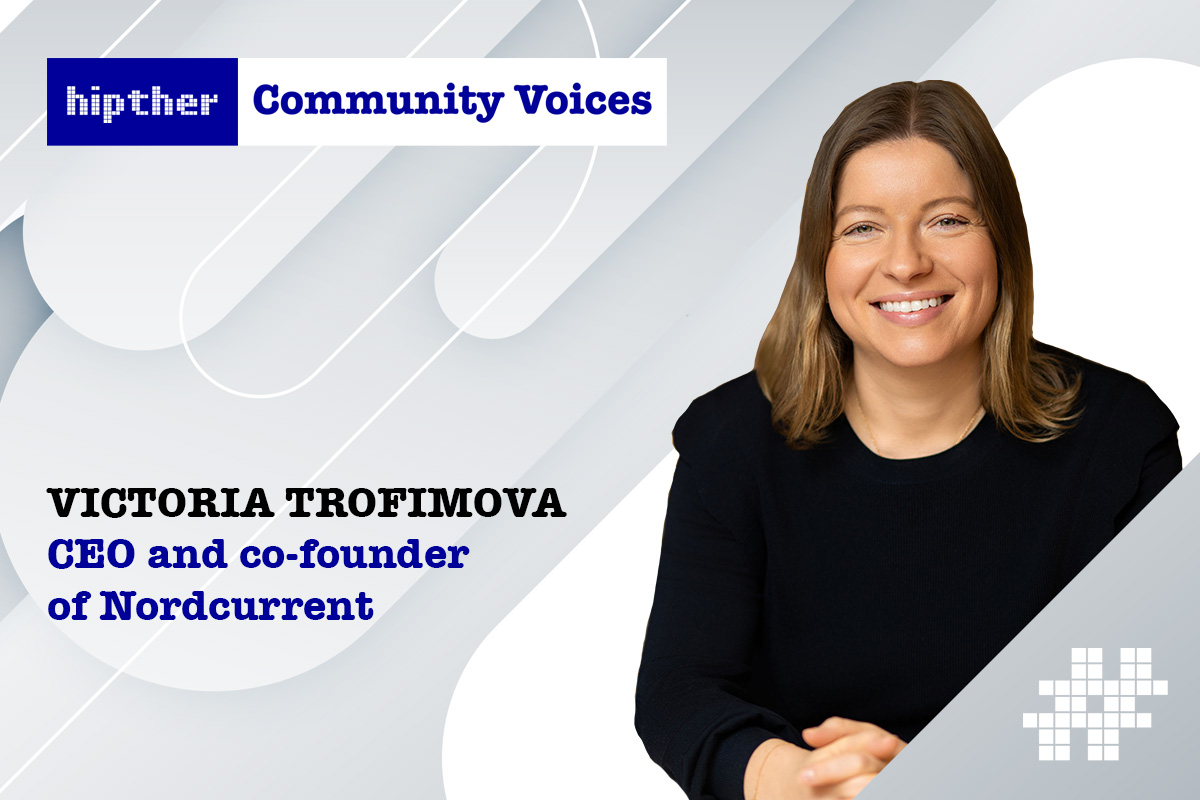
In this edition of HIPTHER Community Voices, we talk with Victoria Trofimova, the CEO and co-founder of Nordcurrent, the biggest game studio to come out of Lithuania and the Baltics. Since starting the company in 2002, Victoria has led Nordcurrent from a small team to an international gaming success story — all without external funding.
She shares how key decisions like focusing on mobile games, building a diverse team, and staying true to their creative vision helped shape Nordcurrent’s growth. We also dive into how she’s helping put the Baltics on the global gaming map, supporting young talent, and what advice she has for the next generation of women leaders in tech.
Nordcurrent has grown into a Baltic powerhouse since its founding in 2002. What were some of the pivotal moments that shaped the studio’s identity and success—especially as a bootstrapped company?
One key moment was our decision to focus fully on mobile gaming early on. That shift, around 2010, allowed us to scale globally with titles like Cooking Fever, which became a long-term success story. Another pivotal step was building and retaining in-house capabilities, from development to marketing, while staying self-funded. Being bootstrapped taught us discipline, resilience, and how to make bold yet thoughtful decisions without external pressure.
You’ve scaled a 360-person team across multiple countries. What have been the biggest challenges—and advantages—of growing Nordcurrent without external funding?
The biggest challenge has been growth pacing. We had to build sustainably, without shortcuts. But that’s also been our advantage; we’ve kept creative control, built long-term trust with our team, and stayed focused on profitability and product quality. It’s a different rhythm, one that favors deep thinking over hype.
Diversity in gaming is still lagging behind. What concrete steps has Nordcurrent taken to drive inclusion, and how do you embed this into studio culture, hiring, and leadership?
We don’t overcomplicate it, we hire the best people who want to build great games with us. We don’t separate or label by gender, background, or title. If someone brings talent, drive, and a collaborative mindset, they belong here. That approach has naturally led to a diverse team, including strong female leadership across departments. We focus on creating an environment where everyone is treated equally, trusted, and heard.
You’ve spoken about attracting global talent to Lithuania and the Baltics. What makes the region appealing—and what misconceptions do you often have to overcome when recruiting internationally?
The Baltics offer a great work-life balance, strong tech ecosystems, and a tight-knit creative scene. But we still need to overcome outdated perceptions; for example, that it’s cold, isolated, or lacking opportunity. The truth is, Vilnius and other cities here are dynamic and are increasingly being recognized for innovation.
In such a saturated gaming market, how does Nordcurrent approach innovation and stay relevant without falling into trend-chasing?
We listen deeply. To players, to data, and to our instincts. With over two decades of experience, we’ve built a rich internal library of what works, what lasts, and what connects. Innovation for us isn’t about reinventing the wheel every time. It’s about layering insight, emotion, and cultural nuance onto strong foundations. We don’t chase trends, we ask how a game fits into people’s lives. That’s why titles like Airplane Chefs resonate. They’re familiar yet fresh, culturally rich but globally accessible. Years of learning has given us the confidence to trust our gut and the clarity to know when to try something bold.
From mobile hits to console and PC publishing—how has your portfolio strategy evolved, and how do you decide what kinds of games to invest in today?
Our mobile success gave us the freedom to diversify. With Nordcurrent Labs, we now publish PC and console games that align with our values: original IP, strong storytelling, and long-tail potential. We look for teams with vision and grit, whether it’s cozy games or narrative-rich adventures.
You recently acquired River End Games and the Cinemaware catalog. What’s the strategic thinking behind those moves, and what can players expect from these legacy properties going Forward?
River End Games brings deep narrative talent and AAA craftsmanship, which complements our publishing ambitions. With Cinemaware, we’re reimagining classics for a new generation. These acquisitions aren’t about nostalgia only, they’re about unlocking untapped creative value in ways that feel both respectful and bold.
How are you helping to nurture the next generation of game developers in the Baltics, and what role do you think studios should play in education or early talent development?
We take this responsibility seriously. As the largest Lithuania-born game developer, we feel a strong duty to help grow the industry, not just our studio. We actively collaborate with the Lithuanian Game Developers Association, support local game jams, and organize major meetups that bring the community together. Our goal is to make the gaming industry more visible, more accessible, and more appealing, especially to young people who may not yet see it as a real career path.
It’s not just about hiring talent, it’s about helping to create it. We believe studios should take an active role in popularizing the industry, opening doors, and building a future where game development is seen as a creative and respected profession.
You’re leading a company that’s rooted in Eastern Europe but competing on a global stage. How do you balance local values with global ambitions?
We don’t see it as a conflict. Our roots give us authenticity and resilience, and these are qualities that resonate globally. We build games that are grounded in strong craft and cultural richness but are universally relatable. Staying true to who we are has been our best strategy for going global.
And finally—what advice would you give to aspiring women leaders in tech and gaming who want to break into this industry and rise through the ranks?
Own your voice. You don’t need to fit a mold to lead. Surround yourself with people who challenge and support you. And remember, leadership isn’t just about a title, it’s about taking responsibility, lifting others, and staying curious. Tech and gaming need your perspective, and there’s room for you at the table.
The post HIPTHER Community Voices: Interview with the CEO and co-founder of Nordcurrent Victoria Trofimova appeared first on European Gaming Industry News.
Baltics
Betsson Group Rolls Out Its Flagship Offering in Lithuania
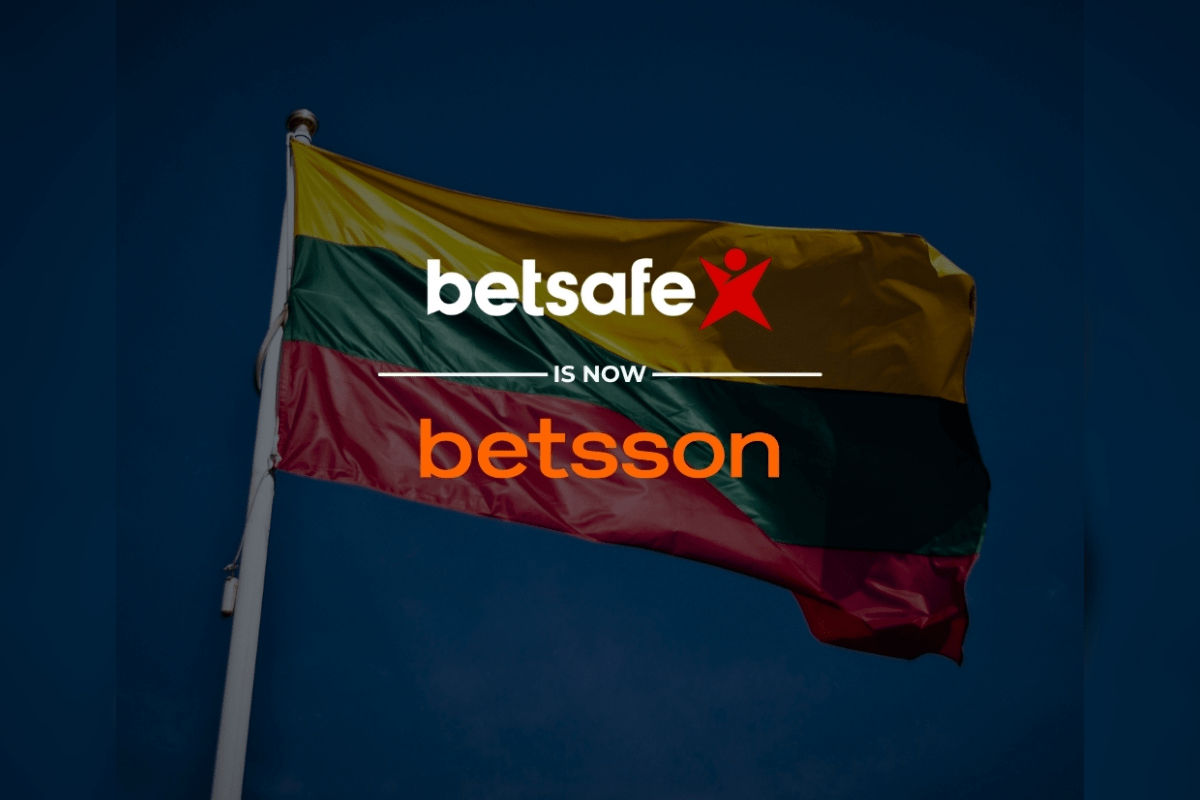
Betsson Group has today launched its flagship brand, Betsson, in Lithuania, marking a new chapter in the Group’s ongoing strategy to unify and elevate its brand presence globally. The rebrand sees the former Betsafe operation transition to the Betsson brand, further strengthening the company’s positioning in regulated markets.
Betsson Group first entered the Lithuanian market in 2016 through the acquisition of TonyBet, which was rebranded as Betsafe the following year. Since then, the brand has gone from strength to strength, establishing itself as one of the leading operators in the country. The transition to Betsson reflects the Group’s ambition to bring even greater consistency, scalability, and brand recognition to its operations across regulated markets. For Lithuanian customers, it ensures the same trusted and seamless gaming experience – now backed by the strength of a globally recognised brand, with expanded resources, international partnerships, and unique fan engagement opportunities.
Jesper Svensson, CEO at Betsson Group, commented, “Lithuania has been an important market for us over the years, and this rebrand is a natural next step in our journey. By aligning our presence in the market under the Betsson brand, we can tap into broader marketing synergies, strengthen our global identity, and continue offering the same great service that our customers know and trust.”
The rebrand reflects Betsson’s ongoing investment in Lithuania, where the company moved into a larger office in Vilnius’ Central Business District just over two years ago. Today, the office is home to around 40 employees working across commercial, payments and support functions.
Over the years, the Group has also built strong local partnerships that demonstrate its commitment to sport. Betsafe is the title sponsor of the Lithuanian Basketball League (Betsafe-LKL), one of the most competitive leagues in the region. The brand also supports both the men’s and women’s Lithuanian national basketball teams, and is a proud sponsor of football club FC Žalgiris.
This brand transition also aligns with Betsson Group’s broader international marketing strategy. The Group is actively investing in high-profile sports sponsorships, including partnerships with Boca Juniors and Racing Club in Argentina, Inter in Italy, Atlético Nacional in Colombia and several other clubs across Europe and Latin America. These global initiatives not only raise brand awareness but also bring added value to local markets like Lithuania through stronger brand recognition and cross-market campaigns.
The post Betsson Group Rolls Out Its Flagship Offering in Lithuania appeared first on European Gaming Industry News.
Baltics
Estonian start-up vows to revolutionise iGaming customer support with AI
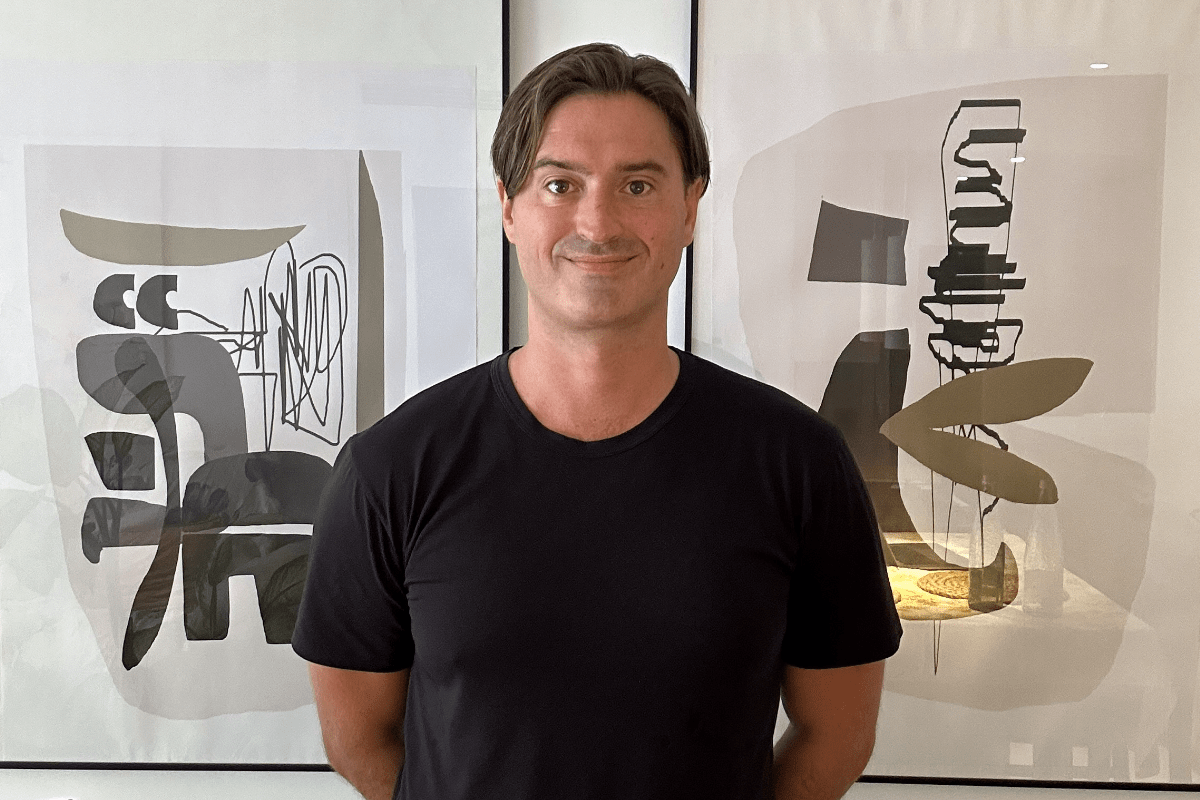
Tugi Tark, which literally translates as ‘smart support’, launches an intelligent platform with AI agents to help online casino operators transform customer service
Estonian start-up Tugi Tark has formally launched with a mission to modernise the iGaming industry’s approach to customer support.
According to the tech disruptor, which is only now emerging from stealth mode, the future of player support will be proactive and automated, rather than reactive and manual.
Tugi Tark uses a combination of large language models, machine learning, and a dataset of over 10 million iGaming customer service tickets resolved over the years.
Tugi Tark’s AI agents, available 24/7, resolve a significant percentage of cases independently, increasing each month as support teams train their AI agents. This streamlines the player experience and frees up human staff to focus on higher-value tasks.
Crucially, the agents can provide support in more than 250 languages, a key advantage for iGaming companies operating across multiple markets. Players are assisted in their native language, without the need for third-party translation tools or region-specific teams — reducing costs and breaking down language barriers.
Players parting with money expect fast, effective support at any time. Tugi Tark’s AI agents address this critical pain point. Slow response times remain one of the biggest frustrations in iGaming customer support — often due to staffing constraints.
Proactive support can improve the player experience across a range of issues, including failed payments. When a deposit fails, Tugi Tark receives an API call from the payment system with the error message. This instantly triggers a relevant chat with the player to clarify the reason and provide a solution. The result: improved customer satisfaction, successful deposits, and lower player churn.
Tugi Tark CEO Harpo Lilja said: “We’re convinced we can help operators transform player support from a cost centre into a strategic competitive advantage.
“Support isn’t just about answering questions. It’s about creating momentum, trust, and loyalty. The quality of customer service is critical — it can make or break a VIP programme.
“With human agents, the support times are inconsistent. Support staffing for a multi-market 24/7 operation is challenging and costly. High churn among staff is common, and the limit of talent is an unfortunate reality.
“Combining both human and AI agents is the solution to the problem. AI agents can resolve many queries independently, and the rest are automatically routed to the most suitable human agent to guarantee a fast and effective resolution.”
Tugi Tark is a remote-first company headquartered in Tallinn, Estonia. The business has doubled its headcount in less than a year and is scaling rapidly to meet growing demand.
Five iGaming clients are set to onboard imminently, with further partnerships to be announced before the end of 2025.
“We understand high-value players, compliance, cost optimisation, player safety, and the nuances of iGaming support — because we’ve lived it,” added Lilja, who brings over a decade of experience in iGaming and a proven track record of elevating customer support across hundreds of brands.
“Every feature is designed to solve real-world challenges: regulatory pressure, global player bases, multi-brand operations, and 24/7 VIP care.”
The post Estonian start-up vows to revolutionise iGaming customer support with AI appeared first on European Gaming Industry News.
-

 Central Europe6 days ago
Central Europe6 days agoGerman Federal Government Significantly Increases the Budget for Games Funding
-

 Eastern Europe7 days ago
Eastern Europe7 days agoThunderkick enhances presence in Romania through MaxBet partnership
-

 BETBY7 days ago
BETBY7 days agoBETBY EXPANDS LATAM FOOTPRINT WITH MOBADOO ESPORTS PARTNERSHIP
-

 California State Assemblymember Avelino Valencia6 days ago
California State Assemblymember Avelino Valencia6 days agoNew Bill in California Could End Online Sweepstakes Gaming
-

 Africa7 days ago
Africa7 days agoBetKing Delivers Healthcare Services and Nutrition Support to Underserved Nigerian Communities
-

 Compliance Updates6 days ago
Compliance Updates6 days agoNew Initiative from DI Council Aims to Enable Betting on Professional Sports
-

 Conference6 days ago
Conference6 days agoAmatic Industries Showcased its Latest Innovations at Peru Gaming Show 2025
-

 Africa6 days ago
Africa6 days agoNew Governing Board of the Gaming Commission of Ghana Sworn in








